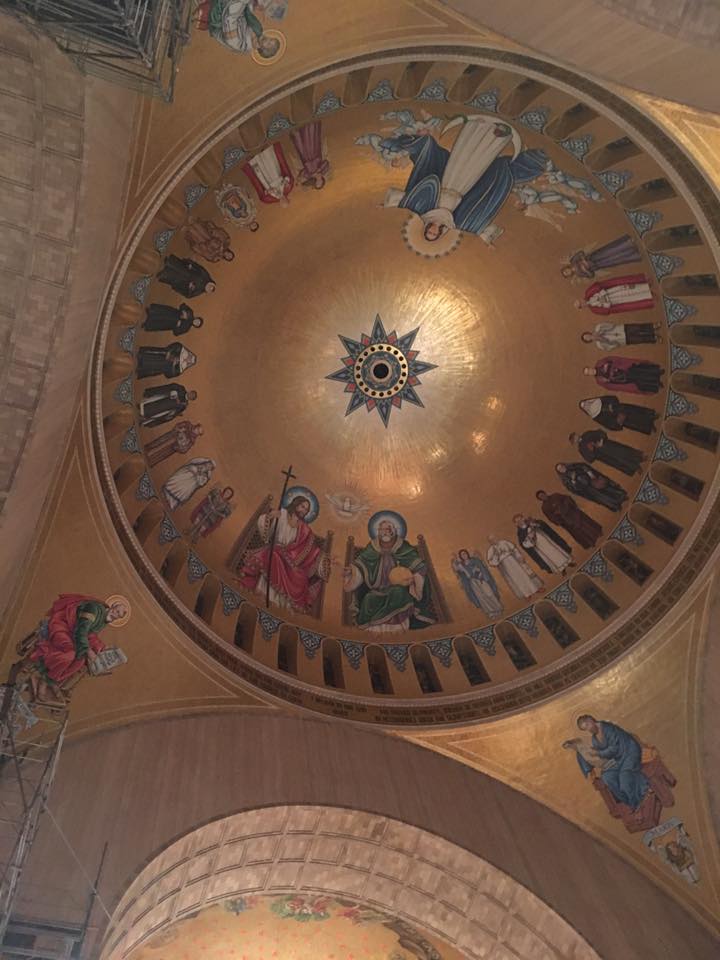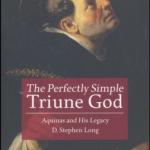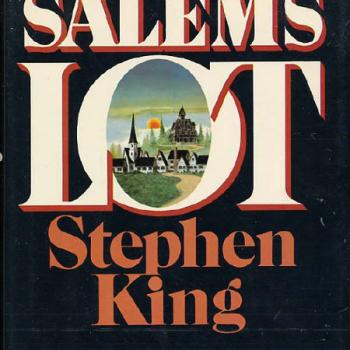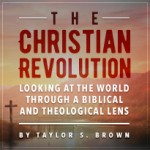I find myself in very odd circumstances. I just returned from Washington D.C. having helped coordinate a conference on how Wesleyan theology can inform political discourse, both within the fracturing United Methodist Church and in the larger public sphere. While I was in D.C. I had the great privilege of seeing the National Lutheran Choir perform the choral Holy Spirit Mass at the Basilica of the National Shrine of the Immaculate Conception. It was one of the most beautiful things I have ever seen in my life.
No lie, I cried during it.
I mean full-on, struck-by-the-transcendent-beauty-of-the-Triune-God crying.


Add on top of all of this that it is the 500th anniversary of the Protestant Reformation this year and you would think that I would be reveling in my Wesleyan, Protestant pride right about now. And yet that is not the case.
In fact, the 500th anniversary of the Reformation leaves me feeling ambivalent at best and somewhat remorseful at worst. I look at the state of Protestantism and I am often left with very mixed feelings. While evangelicalism is remaining somewhat stable and is growing—at least in the global South—it is often riven with noxious illnesses that result from the modern overemphasis on hyper-individualized spirituality, such as prosperity gospel elements and hyper-emphasized charismatic movements that stress a feeling of immediate spiritual ecstasy and power at the cost of orthodoxy (right belief), orthopraxy (right practice), and sustainable orthodkardia (right desire) (see my last post on Bethel and its modern form of syncretism to understand a bit more of what I mean).
Liberalized mainline Protestantism seems to have little hope in the long-term, at least statistically speaking. Denominations like The Episcopal Church and the United Church of Christ continue to bleed numbers by the week, or so it seems. Many churches within such denominations long ago abandoned traditional Christian doctrine on key matters, and it is not unusual to find many leaders and speakers who embrace old heresies in new garb. I mean, the fact that John Shelby Spong was even allowed to be a bishop for as long as he was in TEC is still baffling to me.
The point of all this negativity is that I increasingly find myself resonating with Stanley Hauerwas in a recent article for the Washington Post. In the article, Hauerwas describes his journey from a small-town Methodist to an ecumenically-minded theologian who has embraced aspects of multiple Christian traditions and taught at both major Catholic and Protestant universities. The upshot of all of this is that, for Hauerwas, the divide that separated Protestantism and Catholicism for him has become less and less over the years, to the point where he seems to wonder why he has not become Roman Catholic:
That I am a theologian more defined by where I went to graduate school than by any ecclesial tradition mirrors changes in the Protestant world — in particular, that the gulfs between the denominations seem only to feel smaller and smaller. And so does the gulf between Catholicism and Protestantism.
Increasingly I have felt this same way. This has actually increased during my time in a Protestant evangelical Wesleyan seminary. In particular, as I watch the increasing entrenchment within the United Methodist Church (the denomination I have been most closely associated with over the last several years) between conservatives and liberals over same-sex sexual behavior I find myself with an increasing pessimism about the whole project of American Protestantism and its deep suffusion by the modernist, hyper-individualism of the American ethos. The denomination is on a rapid track to rend itself asunder over the issue of same-sex sexual behavior, all while neither side in the debate has a developed anthropology that allows them to actually put forth a traditionally Christian view on the matter.
Liberals can’t conceive a picture of the human person that can be fulfilled apart from sexual behavior (this goes for both straight and gay people). Conservatives can’t put forward a detailed answer as to why same-sex sexual behavior is wrong, other than appealing to divine command theory; “God said it, I believe it, that settles it.” Meanwhile, I—as a Protestant—have largely adopted the Catholic sexual ethic. And this is because I believe that it provides a more robust anthropology that allows one to maintain a traditional sexual ethic without marginalizing gay people. It calls all Christians to chastity, regardless of whether they are straight, gay, married, or single.
But this is not a blog post primarily concerned with the debate over sexual ethics.
The point is to show the strange place that I, and many like me, find ourselves in at this historic celebration of Luther nailing his Ninety-Five Theses to the Wittenburg Church door. Protestants who feel somewhat ambivalent about the Reformation and the mixed bag of modernity it ushered in. Protestants who increasingly find themselves aligning more with Catholic thinkers, both old and new, on key theological issues, largely because our own traditions have imbibed too deeply of the modernist draught.
On the eve of the 500th anniversary of the Reformation I will celebrate the good that the movement brought about: legitimate reforms needed in the medieval church, the increased accessibility of the Bible, a reclaimed emphasis on the priority Christ in all matters of doctrine and practice. Yet I will also lament the negatives that the movement brought with it: the rampant interpretative pluralism of Scripture, the lack of a unifying sacramental center for Western Christianity, and tribalistic strife between Christian brothers and sisters.
The five-hundredth anniversary of Martin Luther’s act on October 31st, 1517 can and should be celebrated. But it should be celebrated realistically and with some sadness as well.












